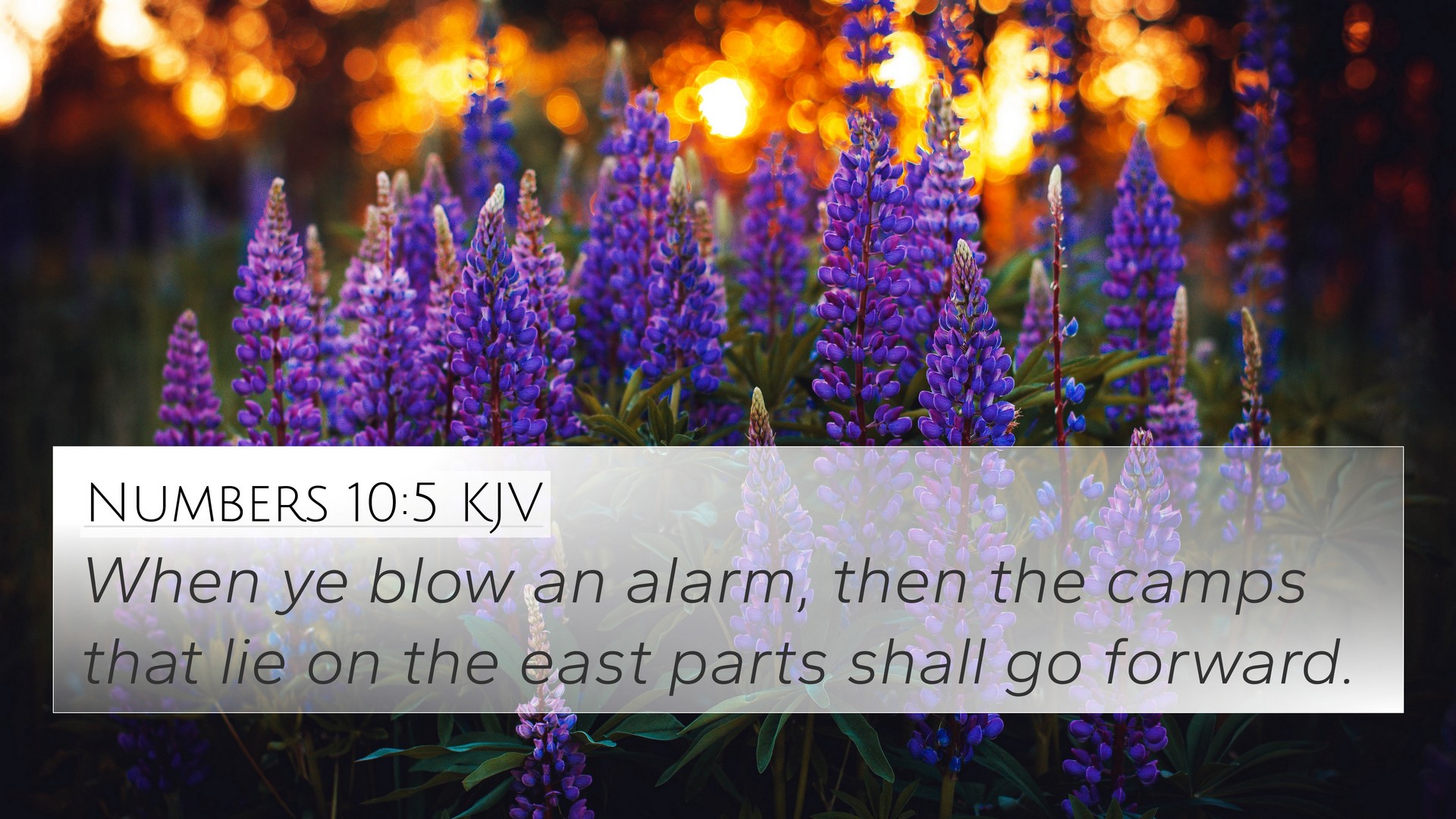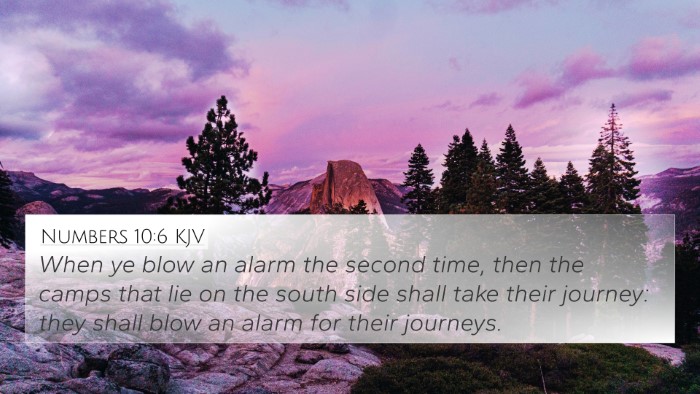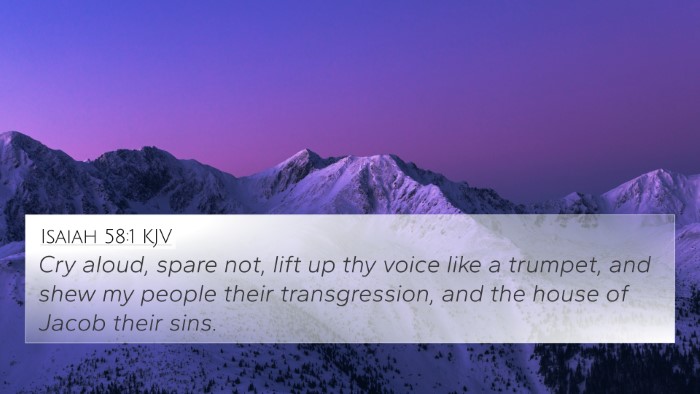Understanding Numbers 10:5
Numbers 10:5 states, "When you blow the trumpets, the camps that are pitched to the east shall set out." This verse holds significant meaning within the context of Israel's journey through the wilderness and serves as an important directive for organization in their march. The scriptures surrounding this verse, including various commentaries, help to elaborate on its implications for obedience, order, and God's guidance.
Meaning and Context
This verse not only provides a command regarding the blowing of trumpets but also signifies the importance of coordination among the tribes of Israel. The trumpets serve as tools of communication that indicate when the camp is to move. This reflects God's intention to lead His people systematically and orderly, reinforcing the sacred structure of the community.
Commentary Insights
- Matthew Henry's Commentary: Matthew Henry highlights the significance of the trumpets as instruments for calling the assembly and guiding the tribes during their travels. He emphasizes that this was a way for God to maintain order among His people, ensuring everyone understood when it was time to move. The sound of the trumpets represented divine commands, reassuring the Israelites of God's presence and leadership.
- Albert Barnes' Notes: Barnes notes that the usage of trumpets is symbolic of communication from God. They were not only meant for congregation but also for war, indicating that God's people must remain ready for both worship and battles ahead. He suggests that this practice teaches us about being alert to God's leadings in our own lives.
- Adam Clarke's Commentary: Clarke emphasizes the role of the trumpets in organizing the people for their journey, mentioning that God required His people to follow His commands carefully. He elaborates on how the blowing of the trumpets signified different actions—assembly, setting out, and war—thus shaping Israel’s identity as a nation under divine authority.
Cross-References and Connections
Thematic connections arise when we analyze Numbers 10:5 alongside various other Bible verses. Here are some notable cross-references:
- Exodus 19:16: This verse describes a similar use of sound witnessing God's presence, emphasizing the importance of readiness.
- Joshua 6:4-5: The trumpets played a crucial role in the conquest of Jericho, symbolizing victory through obedience.
- 1 Corinthians 14:8: This New Testament parallel focuses on the significance of sound for clarity and action within the church, linking to the order established in Numbers.
- Psalm 81:3: This psalm encourages blowing the trumpet during sacred times, affirming the role of sound in worship and remembrance of God's work.
- Revelation 1:10: The voice that sounded like a trumpet in the New Testament reflects God's call to action in a spiritual context.
- Isaiah 58:1: Here, the command to lift up a voice like a trumpet emphasizes proclaiming truth, resonating with the call of the trumpets in the Israelite camp.
- 2 Samuel 6:15: This verse illustrates the joyous use of trumpets in celebration, pointing to their role in worship and communal life.
Thematic Bible Verse Connections
In analyzing the connections between these verses, we see a strong theme of God's guidance. The need for structure and order in the community is illustrated through the use of trumpets, linking both Old and New Testament teachings. This insistence on obeying the divine call can be reflected in our personal lives, where attentiveness to God's leading is vital.
Application in Biblical Study
Understanding Numbers 10:5 opens doors to numerous tools for Bible cross-referencing. To explore the connections further, consider the following methods:
- Bible Concordance: Utilize a concordance to locate other scriptures that mention trumpets or divine communication.
- Bible Cross-Reference Guide: Employ guides to see thematic connections between different passages relevant to leadership, obedience, and guidance.
- Cross-Referencing Bible Study: In group studies, focus on the interconnectedness of these verses to deepen understanding.
Conclusion
Numbers 10:5 offers profound insights into God's method of guiding His people. It emphasizes the necessity of obedience, clarity, and readiness within the community. By engaging in comparative Bible verse analysis and leveraging cross-referencing tools, readers can develop a thorough understanding of the implications of this command and see its relevance throughout Scripture.







